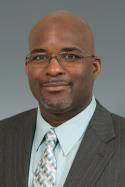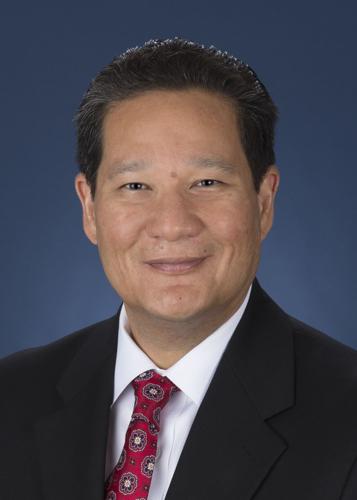Pima Community College has laid out its arguments for why it deserves to regain its accreditor’s full confidence in a report that describes positive changes at the school but offers limited proof of their effectiveness.
The college submitted a 55-page report Wednesday to the Chicago-based Higher Learning Commission, formally launching its bid to shed a sanction imposed last year over concerns PCC barely met several quality standards required for accreditation.
The report addresses 11 areas of deficiency that led to the 2015 sanction.
In a news release and an email to employees, PCC Chancellor Lee Lambert said the report “provides strong evidence that the college has substantially addressed,” the accreditors’ remaining concerns.
But Bruce Moses, the college’s assistant vice chancellor for accreditation, who played a key role in producing the report, recently told PCC’s Governing Board there’s not much proof yet either way on whether a number of new measures have led to improvements.
Many of the changes — such as a new enrollment management plan and new metrics to track student progress — were finalized only in the last few months, so not enough time has passed to show they work.
“I’m worried about not having enough evidence,” Moses told the board at its June 8 meeting in response to a board member question. He urged the college to pay close attention to data collection in coming months to try to gather additional proof that improvements are working.
Some of the issues the PCC report addresses include:
Leadership instability.
The report acknowledges a “continued perception among internal and external constituents that PCC has not yet stabilized its leadership.”
As evidence that things are improving, the report cites PCC’s quick internal selection of an acting provost after three permanent provosts quit in succession over the past three years. The report says the college has been forced to eliminate or repurpose a number of senior positions because of tight finances, and adds that a further reorganization plan will launch this month.
No proven system for effective handling of complaints.
PCC says its Office of Dispute Resolution, founded in mid-2014, has been highly effective.
The office has received more than 200 complaints and inquiries, which typically are acknowledged within one day and investigated within 10 days. The college had hoped for a 90 percent satisfaction rate among complainants who reported misconduct, but the actual satisfaction rate is 64 percent.
Inadequate efforts to measure the quality of PCC programs and make improvements when required.
The report says PCC has adopted six new measurements to judge program quality, such as enrollment rates, completion rates and the percentage of students who find jobs within six months of graduation, and that it started tracking data in those areas in fall 2015.
But a document linked to the report said PCC hasn’t received any new job placement data since 2012 because it lacks a current agreement with the state agency that provides those statistics.
The state agency approved a new agreement with PCC in December, a copy obtained by the Arizona Daily Star shows.
College spokeswoman Libby Howell said PCC has not yet started collecting the new jobs data because it can be accessed only by a board member, and arrangements to do so are still being made.
Lack of input from employees and community experts in the college’s decision-making processes.
The report notes numerous improvements, such as the establishment of community advisory boards to help PCC oversee its finances and its human resources practices, and a governance council that includes faculty staff and students and advises senior management on college-wide issues. Those changes began in 2014 and have proven effective, the report said.
The filing of the report is the first of several steps in the college’s formal bid to win back its accreditor’s favor.
Accreditor representatives will visit PCC in September to verify the accuracy of the report, and school officials will get a final chance in December to argue their case in a closed-door hearing with commission members.
Moses, the college’s accreditation chief, said PCC will put on a “road show” for its employees before the accreditor’s site visit to fully explain the positive changes that have been made. It will help the college’s effort if employees believe in the changes and express confidence to the accreditation site reviewers, Moses said.
The Higher Learning Commission is expected to make a final decision on PCC’s status in February.






